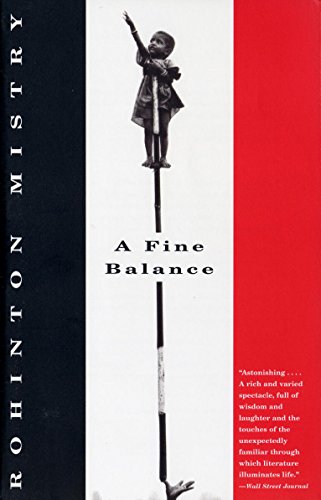What is Literary Fiction?

What type of fiction do you write?
Depending on who you ask, fiction can be broken into two categories: Genre and literary. However, not everyone supports the idea of literary fiction. For this group, fiction can be separated into two camps: Good fiction and bad fiction which, of course, relies on the reader’s opinion.
You’ll find that’s also the case when it comes to literary fiction. Although we’ll attempt to break down the differences between genre and literary fiction in this post, keep in mind that the lines between the two can and often do blur.
Let’s kick things off by defining the characteristics of genre fiction and then literary fiction.
Here’s a list of ways that genre fiction writers can benefit from the methods used in literary fiction. Subscribe to receive this extra resource.
What are the Characteristics of Genre Fiction?
Genre Fiction Appeals to the Masses
Genre fiction is also known as popular fiction— and that’s for a good reason. Genre fiction is more appealing to a wider audience. It’s written for the mainstream reader, especially those who are already fans of a specific subset of fiction (a.k.a. genre). Many readers gravitate to a particular genre, such as mystery, romance, sci-fi, fantasy, young adult, action, history, and so on. Genre fiction gives the fan access to their favorite type of storytelling.
Genre Fiction Follows a Specific Formula

Books that belong to a genre must follow the rules of that specific drama. A sci-fi story must contain advanced technology. Young adult must focus on a coming of age story and often uses a protagonist aged between 12 to 18. Romances must feature a love story.
Of course, as the writer, you can do whatever you choose, but just know that the reader of that genre comes in with basic expectations, and it wouldn’t be the best idea to ignore those expectations. If you do, then congratulations! You’re venturing into literary fiction (but more on that later).
Genre Fiction Uses Conventional Storytelling
Piggybacking off the last point, genre fiction keeps to a loose script. It also follows the predictable ebb and flow of conventional storytelling. Boy meets girl. Boy loses girl. Boy gets girl back.
Another way to think about it is to remember the basic plot diagram of a story:
Genre fiction stories start off with exposition that is interrupted by conflict. Rising action follows until the climax of the story followed by falling action and a satisfying resolution.
Genre Fiction is Entertaining
While not all genre fiction stories can be deemed as such, most of them fall into the category of fun escapism. That is, they provide an entertaining adventure that helps the reader forget about their own cares.
Genre Fiction is Plot-Driven
Because they must abide by a certain formula, most genre fiction stories are hopelessly plot-driven. Sure, they contain interesting characters, some of which the reader may fall in love with or hate to the core, but the plot is always in the driver’s seat. That plot, dictated by the genre, might be a love story, or it may be a whodunit, but it’s always the most important factor in the story.
Genre Fiction Often Features a Happy Ending
And they lived happily ever after… Or at least until the next book in the series comes out.
One of the most poignant characteristics of genre fiction is a tidy ending where burning questions are answered and the characters relax into their new normal. Most popular fiction resolves with a happy ending because the readers demand such.
Genre Fiction is Easier to Sell
It’s called popular fiction for a reason. Genre fiction is an easier sell. Fans of a specific genre are often drawn to reading more books that tell the same type of story. They’re always on the lookout for different interpretations of that basic story.
To Sum It Up
In a nutshell, genre fiction is considered popcorn for the soul. It may not be earth-shattering literature, but at the same time, the stories presented in genre fiction can be inventive, spellbinding, and beautifully done.
Does genre fiction have merit? Certainly! However, genre fiction is less likely to win prestigious literary awards or appeal to book snobs.
What are the Characteristics of Literary Fiction
Literary Fiction Doesn't Follow a Formula
Unlike genre fiction, which follows a loose but predictable narrative, literary fiction doesn’t adhere to any rules. Anything can happen which can be both exciting and unnerving for the reader. Sometimes, literary fiction takes a common theme in genre fiction and turns it on its head. For example, the idea of good overcoming evil is challenged in George Orwell’s Nineteen Eighty-Four.
As a side note, Nineteen Eighty-Four walks a fine line between literary fiction and genre fiction as David Barnett points on in this article for the Guardian. What we now consider classic literary fiction was often viewed as genre fiction by its contemporary critics.
Literary Fiction Uses Creative Storytelling
Because literary fiction isn’t bound to the strict standards of a specific sub-genre, every author is free to make up their own rules as they go along. The reader is never quite sure where the adventure will take them.
Free from rules, the literary fiction writer is able to push the boundaries of what’s acceptable and sometimes the results are extraordinary. See Italo Calvino’s If on a Winter’s Night a Traveler. Written in the second person, this postmodernist metafiction is about your attempt to read a novel. However, you’re constantly prevented from doing so. It’s not very often that you can read a novel about you reading a novel.
Literary Fiction Explores the Human Condition
While genre fiction (as a whole) seeks to distract the reader through light entertainment, literary fiction is much more introspective in its objective. Literary fiction as a whole wants to make sense of the world around us by exploring the human condition.
An example of this is Rohinton Mistry’s A Fine Balance, which is a haunting tale of India in the 1970s and 1980s. Through the lives of four principal characters, Mistry explores the simple hopes and palpable misery that we teeter between in this life. Although I read the book years ago, those characters are still with me, and that’s one of the hallmarks of literary fiction— the ability to create memorable characters. Because genre fiction is so focused on plot, it can’t compete with the intense character studies contained within a work of literary fiction.

Literary Fiction May Be Difficult to Read
Stories that explore the human condition aren’t exactly fun reads. By nature, they have to deal with a difficult subject matter with unflinching honesty. It can be a tad uncomfortable to think about these issues when you, as the reader, simply want to escape.
Literary fiction may rely on symbolism or allegory to convey a deeper meaning. There’s almost always a deeper takeaway than the story itself reveals.
Literary Fiction is Character-Focused
While genre fiction is inextricably tied to the plot, literary fiction has the same relationship with the character. The characters must be explored and defined and the impetus that moves the story forward. Literary fiction doesn’t just show the characters in action, it also shows how every action changes the character.
Literary Fiction Often Has an Ambiguous Ending
In literary fiction, endings are usually sad, abrupt, or left up to your interpretation. Sometimes, nothing is resolved, which leaves the reader desperate to find meaning in it all.
Literary Fiction is Award-Friendly
You know how those artsy movies (that no one’s ever heard of) end up getting awards and accolades? Then, because it’s so celebrated, you end up seeing the movie, only to realize that you would’ve preferred watching the latest Thor movie?
That describes a lot of literary fiction. Because it often pushes boundaries and employs a unique perspective, works of literary fiction get more awards. Critics love that kind of thing. However, receiving an award doesn’t necessarily mean that the book is worth your time or money. As with all things art, creative genius is in the eye of the beholder.
To Sum it Up
If genre fiction is popcorn, does that make literary fiction more serious and substantive?
Not necessarily. Literary fiction provides a fresh way to tell stories and it ignores standard formulas. It stands alone and is not scared.
Final Thoughts
The term "literary fiction" is controversial and for good reason. As more “literary” writers venture into genre fiction, the lines of distinction have blurred. Sometimes, it’s not always clear. Perhaps, it is genre fiction that’s just pushing its own boundaries.
Or, maybe literary fiction is a genre all its own.
What are your thoughts? Do you write literary fiction? Or do you write genre fiction? Let us know in the comments below!
Here’s a list of ways that genre fiction writers can benefit from the methods used in literary fiction. Subscribe to receive this extra resource.




